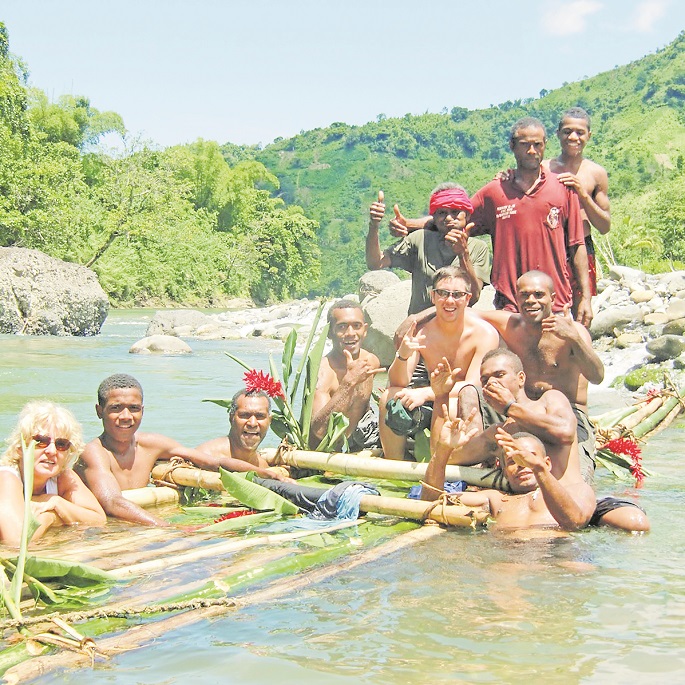Tourism, central to Fiji’s economy for decades, has felt the full brunt of COVID-19 with many nations closing their borders to tourists. Last week’s Reset Fiji episode took a deep dive into the upheaval in the tourism industry as the impacts reverberate across Fiji and the Pacific.
Tourism plays a critical role in the economy of Fiji. COVID-19 is a major shake-up for the tourism sector. In 2016 tourism contributed 16 per cent to Fiji’s GDP, employing both directly and indirectly over 150,000 people with women making up 35 per cent of the workforce. Today tourism represents 46 per cent of GDP. With most tourists coming to Fiji from Australia and New Zealand to holiday, it is easy to see why the industry is facing its biggest challenge yet, with 93 per cent of businesses reporting a significant decline in sales and revenue from the Tourism Sector.
James Sowane noted that, the entire industry will have to establish and implement new protocols for dealing with the global pandemic.
This provides many challenges for Fijian hospitality, which is “people-focused’ and is known for its friendliness. From the moment a traveller steps onto the plane and onto our shores, from the transport that picks them up from the airport, to the restaurants where they eat, or the handicrafts or tour trips that they do to villages, all will need to have protocols in place to ensure the safety of our visitors, our communities and the survival of the industry.
But this is not just something for the tourism industry the entire population must be engaged in promoting and enacting protocols that discourage the spread of the virus. A single outbreak could end future opportunities for tourism pathways with other countries.
Even if we get the protocols right and in place, Fiji needs to consider expanding its traditional market (with limited advertising budgets, honeymooners, families, development and professional travels etc) who are COVID travel wary.
The most likely travellers will be the millennials mostly “ethical travellers”, with different needs but particularly digital access–allowing them pay for everything online including dive trips, tours to cultural and heritage sites while demanding a sustainable and authentic footprint.
A common theme for many panelists when considering the future of Fiji’s tourism was the environment, climate and its people.
Fantasha Lockington highlighted that protecting the environment is central to the longevity of Fiji’s tourist industry. She pointed out the pro-active role of tourism as an environmental protector by for instance, developing their own waste management or renewable energy systems but also as a watch dog for any environmental damage.
As the climate changes and ocean temperatures rise, there will be a need to adjust. Justin Hunter discussed how localising decision-making systems, like the “Blue-town” concept, can help ensure that communities can control how the local environment is sustained and respond to a changing climate.
This includes deciding about what they need to preserve the environment and allowing communities to; “go after donor funding because we know where it should go, we should not leave it in the hands of other people, we’ve got to take ownership” and avoid the “Band-Aid solutions of others”.
Danny Jason spoke about the need for many tourists to have a uniquely ‘Fijian’ experience, staying in traditional accommodations and undertaking activities like planting, harvesting, preparing and cooking Fijian crops.
The unique experience resonates with both foreign and domestic tourists allowing people to disengage from the digital world and, “engage with the communities, learn and take back these experiences that are life skills we survive on”.
Fijians must feature in any conversation about tourism from now on and the role that it can play in helping people feel proud of their land and environment while encouraging those communities and villages to preserve it.
Mr Sowane highlighted that it is important to utilise this current moment of downtime to talanoa and consult on how the sector can anticipate, adjust and reset to grow.
Stephen Pratt highlighted the need to have educational systems that can up skill Fijian workers to deal with the new and emerging markets. Further to this is the need to ensure that the tourism sector is skilled in dealing with crises, a frequent experience in Fiji from political upheaval, tropical cyclones, and now the COVID-19 pandemic.
The panel identified the link between agriculture and tourism as an avenue to value add to both sectors. Fantasha Lockington pointed out that there was an opportunity to close the gap between our imported food and that supplied domestically.
The IFC report, ‘From the Farm to the Tourist Table’ tells us that about $38 million worth of imported fresh produce is brought in specifically for the tourism market.
Of the $74 million annually, $24 million can be grown here in Fiji including beef products, pork products and fresh fruit and vegetables. Other conversations in the Reset series have raised the importance of creating greater value by further integrating both sectors.
With no certainty about the future, planning for the tourism industry must factor in both the domestic and foreign sectors. While the global pandemic will eventually end, there will be evolving challenges from a world dealing with climate change.
To adapt and survive Fiji, and other developing countries, must ensure they have the flexibility to respond to a dynamic future, this includes not signing away policy space needed to nurture industries in free trade agreements.
The COVID-19 pandemic has put tourism in Fiji and the Pacific in a tenuous position. It is forcing the industry to change, adapt and evolve.
The panel was unanimous this is an opportunity for Fiji tourism to ensure a post-pandemic tourism market that strengthens and supports the protection and conservation of the environment whilst supporting local communities sustainably.
RESET Fiji is brought to you by Mai TV, Oxfam in the Pacific, USP and the Pacific Network on Globalisation.
- Maureen Penjueli is the co-ordinator of the Pacific Network on Globalisation (PANG), a regional watchdog promoting Pacific peoples’ right to be self-determining. The views expressed are the author’s and does not necessarily reflect the views of this newspaper.





